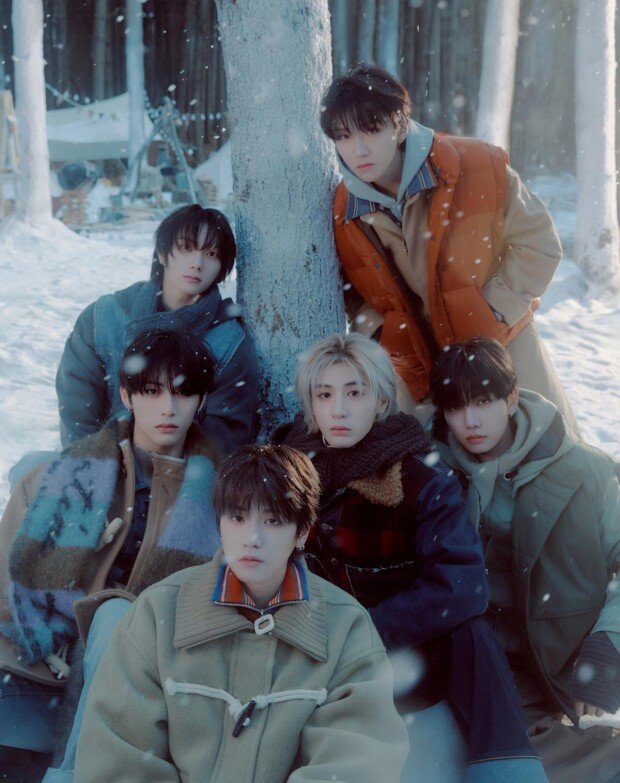Why did BOYNEXTDOOR change the Japanese lyrics to English?
Why did BOYNEXTDOOR change the Japanese lyrics to English?
Posted February. 21, 2025 07:44,
Updated February. 21, 2025 07:44

“If I say, I love you. I want you. Say I love you.”
The six-member boy band BOYNEXTDOOR appeared on a terrestrial TV music show last month and performed their digital single, IF I SAY, I LOVE YOU, this way. The original lyrics of the song are slightly different. Instead of the English phrase “I want you,” the song features the Japanese phrase aishiteru (I love you).
The song, which portrays the pain of a breakup with realistic lyrics and an upbeat melody, was well received, leaving many wondering why the lyrics were changed. IF I SAY, I LOVE YOU ranked No. 1 on Apple Music's Today’s Hits chart in Korea for 34 consecutive days and No. 8 on Melon’s weekly chart (February 3–9), marking BOYNEXTDOOR’s career high.
According to their agency, KOZ Entertainment, the lyrics were changed due to a broadcast deliberation regulation. “We applied for review with Japanese lyrics, but they were deemed unqualified, so we changed them to English,” the agency said. A representative from the broadcasting company stated, “There are no special regulations regarding Japanese lyrics,” adding that “BOYNEXTDOOR’s song was reviewed with English lyrics.” Another terrestrial TV official explained, “We don't necessarily regulate Japanese lyrics unless they affect proper language use in Korea.”
Then, has the regulation on Japanese in terrestrial TV been lifted? The blanket ban on Japanese pop culture was removed in January 2004, during the administration of former President Kim Dae-jung. However, the use of Japanese in Korean songs remains somewhat ambiguous. “Some programs still don't feature Japanese songs,” said a broadcasting official, “and it’s at the discretion of producers, who take into account anti-Japanese sentiment.” The fact that the lyrics of IF I SAY, I LOVE YOU differed between broadcasters may also have been a matter of individual broadcasting companies' choices rather than a set standard in the deliberation review itself.
“I don't think it's necessary to regulate certain languages, as Korean culture has become incomparably more prominent than in the past,” said Lim Hee-yoon, a pop music critic.
사지원기자 4g1@donga.com







